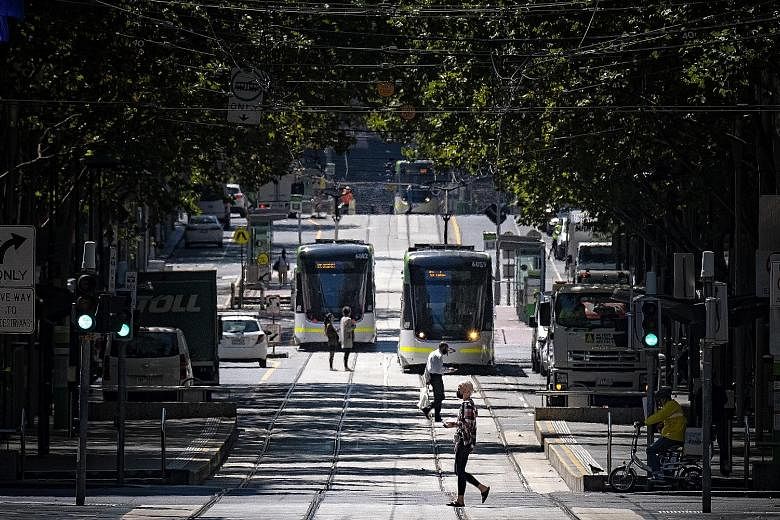Australia has inadvertently developed a new and successful approach to dealing with the Covid-19 pandemic, in which any sign of an outbreak prompts an immediate strict and short lockdown.
The first such "circuit breaker" occurred in Adelaide in November, when a small cluster of cases prompted the state government in South Australia to impose a sudden six-day lockdown.
Announcing the measure, the state's premier, Mr Steven Marshall, said a harsh, early lockdown was necessary to prevent any chance of a new wave of cases.
"We need a circuit breaker to stay ahead of this," he declared.
"We must act swiftly and decisively, we cannot wait to see how bad this becomes… There is no second chance to stop a second wave."
In the end, South Australia was able to end its lockdown three days early after discovering that one of the positive cases had given false information to contact tracers. The man had not initially admitted that he worked at a pizza shop which was the source of infections, leaving the authorities with a misleading understanding of community transmissions.
In the three months since South Australia's brief lockdown, states across the country have imposed similar short, sharp lockdowns to swiftly prevent any prospect of a lasting outbreak. Earlier this month, for instance, a five-day lockdown was imposed on the city of Perth in Western Australia after a worker at a quarantine hotel became infected. During the lockdown, almost 50,000 tests were conducted in the city of two million people, but no further cases were detected.
A Perth-based public health expert, Professor Archie Clements from Curtin University, said he believed Western Australia had been correct to impose its stringent and costly lockdown even though only one case was recorded.
"What the lockdown did is that it provided some time for the contact tracing to ramp up and it provided a window where we were able to observe and determine whether or not onward transmission had occurred," he told ABC News.
Public health experts have largely praised the circuit breakers, arguing that they minimise transmissions while enabling the authorities to chart the spread of the virus, conduct contact tracing, examine the strain of virus being spread and ensure anyone exposed to it can go into isolation.
Importantly, the public also appears to widely welcome these lockdowns. A Newspoll survey published by The Australian newspaper last Saturday found that the premier of Western Australia, Mr Mark McGowan, has among the highest approval ratings on record. The survey, conducted days after the recent lockdown in Perth, found that 88 per cent of voters were satisfied with his performance and just 10 per cent were dissatisfied, with 2 per cent uncommitted.
Australia's experience of Covid-19 may help to explain the public's apparent support for circuit breakers.
Following the initial outbreak of Covid-19 in March last year, the country effectively went into a nationwide lockdown.
This was followed by a lengthy second lockdown in the state of Victoria after it experienced a serious second wave of cases. By November, Victoria had all but eliminated the virus, leaving the country free of community-transmitted cases of Covid-19, but at risk of outbreaks linked to international arrivals.
As a result, Australians have simultaneously suffered the consequences of a serious second wave of cases and also witnessed the benefits and freedoms of living in cities that are completely or almost completely free of Covid-19.
And so the public is firmly committed to supporting the stamping out of any outbreak. The most recent circuit breaker - a five-day lockdown in Victoria - ended last week.
Professor Catherine Bennett, a public health expert at Deakin University, said Australia has entered "the age of 'circuit breaker' lockdowns".
She wrote on the Inside Story website: "Circuit breakers… don't need to be in place for even one full incubation period to be effective.
"They are generally used… to slow an established outbreak or - as has happened four times recently in Australia - to help close down a new outbreak."
But Prof Bennett noted that recent circuit breakers in Brisbane and Perth had proven to be unnecessary precautions because the infected person had not spread the virus, not even to close contacts.
Further information that emerges from Australia's recent and future circuit breakers, she added, will "determine whether the lockdowns added necessary additional containment, or whether contact tracing alone was coping".


